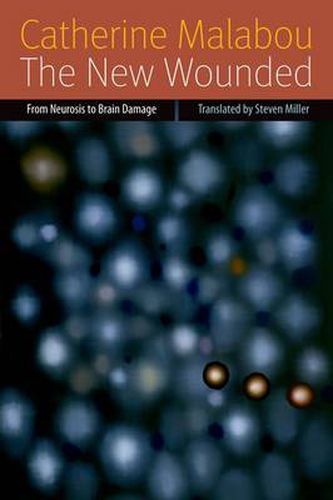Readings Newsletter
Become a Readings Member to make your shopping experience even easier.
Sign in or sign up for free!
You’re not far away from qualifying for FREE standard shipping within Australia
You’ve qualified for FREE standard shipping within Australia
The cart is loading…






This title is printed to order. This book may have been self-published. If so, we cannot guarantee the quality of the content. In the main most books will have gone through the editing process however some may not. We therefore suggest that you be aware of this before ordering this book. If in doubt check either the author or publisher’s details as we are unable to accept any returns unless they are faulty. Please contact us if you have any questions.
This book employs a philosophical approach to the new wounded (brain lesion patients) to stage a confrontation between psychoanalysis and contemporary neurobiology, focused on the issue of trauma and psychic wounds. It thereby reevaluates the brain as an organ that is not separated from psychic life but rather at its center.
The new wounded suffer from psychic wounds that traditional psychoanalysis, with its emphasis on the psyche’s need to integrate events into its own history, cannot understand or cure. They are victims of various cerebral lesions or attacks, including degenerative brain diseases such as Parkinson’s and Alzheimer’s.
Changes caused by cerebral lesions frequently manifest themselves as an unprecedented metamorphosis in the patient’s identity. A person with Alzheimer’s disease, for example, is not-or not only-someone who has changed or been modified but rather a subject who has become someone else.
The behavior of subjects who are victims of sociopolitical traumas, such as abuse, war, terrorist attacks, or sexual assaults, displays striking resemblances to that of subjects who have suffered brain damage. Thus today the border separating organic trauma and sociopolitical trauma is increasingly porous.
Effacing the limits that separate neurobiology from sociopathy, brain damage tends also to blur the boundaries between history and nature. At the same time, it reveals that political oppression today assumes the guise of a traumatic blow stripped of all justification. We are thus dealing with a strange mixture of nature and politics, in which politics takes on the appearance of nature, and nature disappears in order to assume the mask of politics.
$9.00 standard shipping within Australia
FREE standard shipping within Australia for orders over $100.00
Express & International shipping calculated at checkout
This title is printed to order. This book may have been self-published. If so, we cannot guarantee the quality of the content. In the main most books will have gone through the editing process however some may not. We therefore suggest that you be aware of this before ordering this book. If in doubt check either the author or publisher’s details as we are unable to accept any returns unless they are faulty. Please contact us if you have any questions.
This book employs a philosophical approach to the new wounded (brain lesion patients) to stage a confrontation between psychoanalysis and contemporary neurobiology, focused on the issue of trauma and psychic wounds. It thereby reevaluates the brain as an organ that is not separated from psychic life but rather at its center.
The new wounded suffer from psychic wounds that traditional psychoanalysis, with its emphasis on the psyche’s need to integrate events into its own history, cannot understand or cure. They are victims of various cerebral lesions or attacks, including degenerative brain diseases such as Parkinson’s and Alzheimer’s.
Changes caused by cerebral lesions frequently manifest themselves as an unprecedented metamorphosis in the patient’s identity. A person with Alzheimer’s disease, for example, is not-or not only-someone who has changed or been modified but rather a subject who has become someone else.
The behavior of subjects who are victims of sociopolitical traumas, such as abuse, war, terrorist attacks, or sexual assaults, displays striking resemblances to that of subjects who have suffered brain damage. Thus today the border separating organic trauma and sociopolitical trauma is increasingly porous.
Effacing the limits that separate neurobiology from sociopathy, brain damage tends also to blur the boundaries between history and nature. At the same time, it reveals that political oppression today assumes the guise of a traumatic blow stripped of all justification. We are thus dealing with a strange mixture of nature and politics, in which politics takes on the appearance of nature, and nature disappears in order to assume the mask of politics.